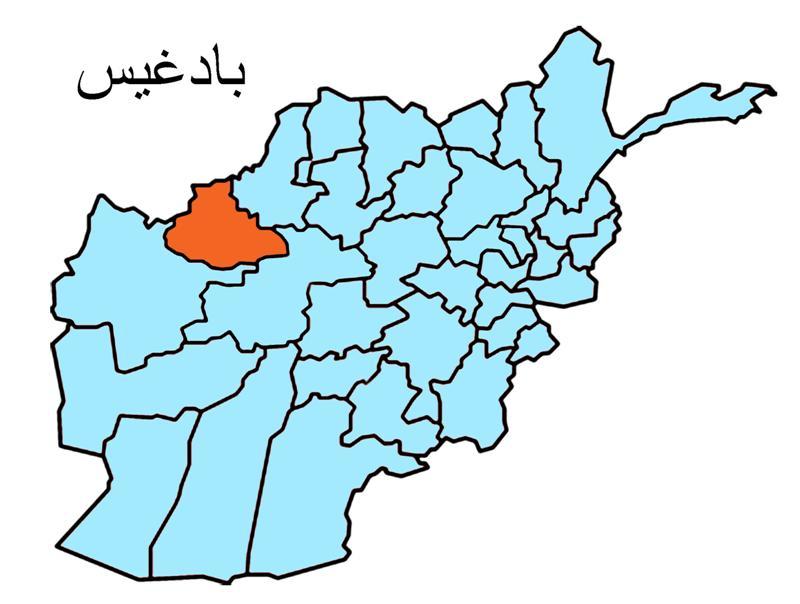QALA-I-NAW (Pajhwok): Residents of northwestern Badghis province complain of inadequate health facilities, asking the government to take necessary steps in this regard.
Having a total area of 32,000 square kilometres area, the Badghis population is estimated at approximately 750,000 inhabitants.
According to the Public Health Department, a total of 38 healthcare facilities, including an 80-bed hospital, operate in the province.
Zmarai, a resident of Mohammadzai village in the Muqar district, told Pajhwok Afghan News there were four healthcare centres in the town but none had medicine and professional doctors.
Therefore, he said most families took their patients to the bordering Herat province for treatment.
Zamarai said patients were often unable to reach hospitals on time due to inadequate transportation services and long distances between residential areas and hospitals.
Abdul Hameed, resident of Joi Ganj district, complained the clinics in their area lacked doctors and medicine.
He said these clinics were located 10 kilometres away from each other and in most healthcare facilities, doctors, especially gynecologists, were reluctant to perform duty due to security concerns.
Mullah Mohammad Kabir, who lives in Khwaja Surkhyan area of Jawand district, said health clinics in their area needed basic facilities.
He recalled a pregnant woman died on her way to hospital in the provincial capital, Qala-i-Naw, a week earlier because local health clinics had no facilities for pregnant women.
Kabir said Jawand district was 200 kilometres away from the provincial capital and residents had to walk for four hours to reach the road leading to the capital city.
Fakhruddin, a resident of Qala-i-Naw, also complained the main hospital in the city lacked needed medical equipment and medicine. He claimed some doctors in the hospital avoided to attend patients.
“There is no blood at the hospital’s blood bank. Often announcements are made on the main mosque’s loudspeaker calling on people to visit the hospital and donate blood in case of emergency, but many time no one arrives,” he said.
The provincial civil hospital director, Dr. Abdul Latif Rostayee, confirmed the hospital had many problems, including the lack of professional doctors, modern equipment and medicine. He linked the problems to a budget shortage.
Rostayee said following the pullout of the Spanish Provincial Reconstruction Health Organisation (WHO) was inadequate.
Public Health Director Abdul Aziz Tariq, however, denied any serious problems in the delivery of medicines to hospitals.
He said they dispatched needed medicines and other items to healthcare centres in remote parts after every three months.
He said some far-flung areas might be faced with shortages of medicines and healthcare services, but in general, there were no such problems.
About the shortage of medical experts, he said professional doctors were unwilling to work in insecure areas.
The public health director said Badghis needed more healthcare centres in the wake of long distances between villages and clinics.
He said they had already urged the Ministry of Public Health to supply blood to the civil hospital’s blood bank and set up new healthcare centres, but the problems remained due to budget deficit.
Deputy Public Health Minister Dr. Ahmad Jan Naeem told Pajhwok Afghan News mobile health teams had been tasked with providing medical assistance to people in areas, where healthcare centres did not exist.
He confirmed the shortage of midwives and female doctors, saying the problem had been overcome as compared to 2002. He explained 80 percent female employees were working in healthcare centres across the country compared to 20 percent in 2002.
The deputy health minister said despite problems, the health sector witnessed considerable progress in term of medical services during the past decade.
Complex surgery operations currently conducted in some hospitals in Afghanistan had positive results, Naeem said.
He called budget shortage a major hurdle restricting his ministry from offering further healthcare services across the country.
Over the past 12 years, about $ 1.5 billion had been invested in health sector in Afghanistan. Of the amount, 73 percent was donated by people, four percent by the government and the remaining 23 percent by the international community.
The international community’s assistance and the government’s budget allocated to resolve problems in the health sector had not been adequate, he said.
Finance Ministry spokesman Abdul Qadir Jilani said funds were being given to government departments keeping in view the available resources, priorities and proposed projects.
He said the Finance Ministry would strive to allocate more funds to the health sector by increasing revenues and recovery of financial resources.
nh/mm/ma
Visits: 19









GET IN TOUCH
NEWSLETTER
SUGGEST A STORY
PAJHWOK MOBILE APP